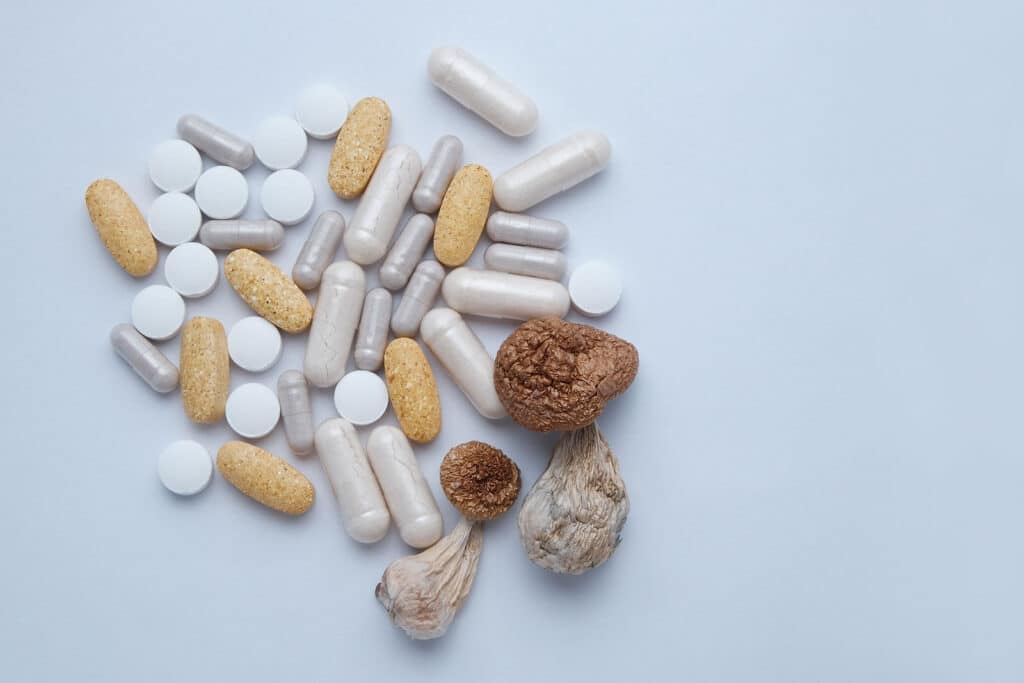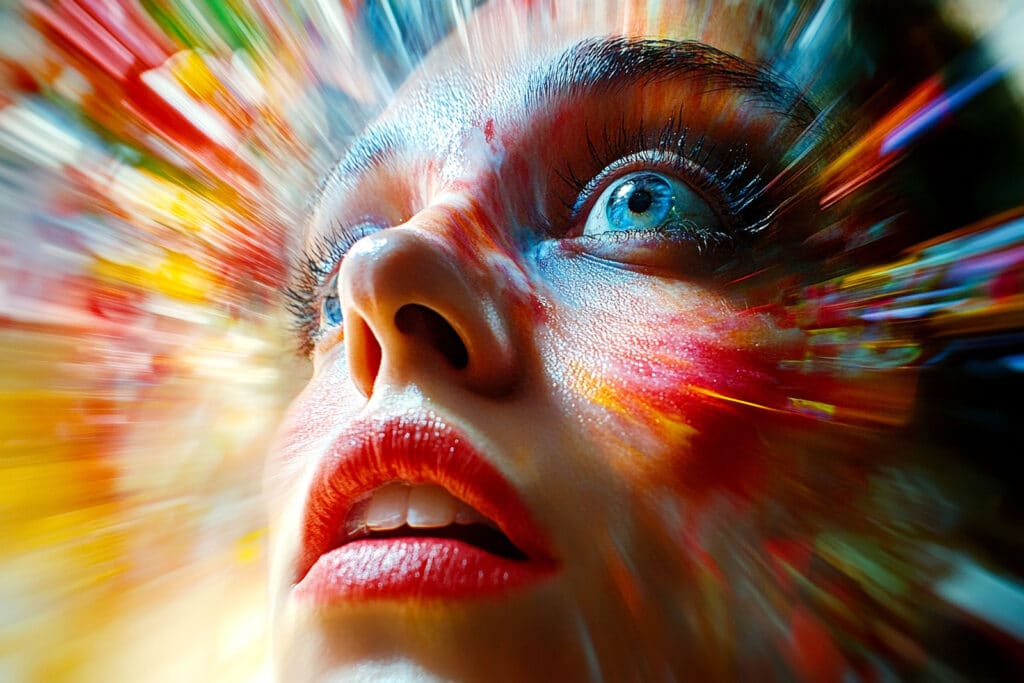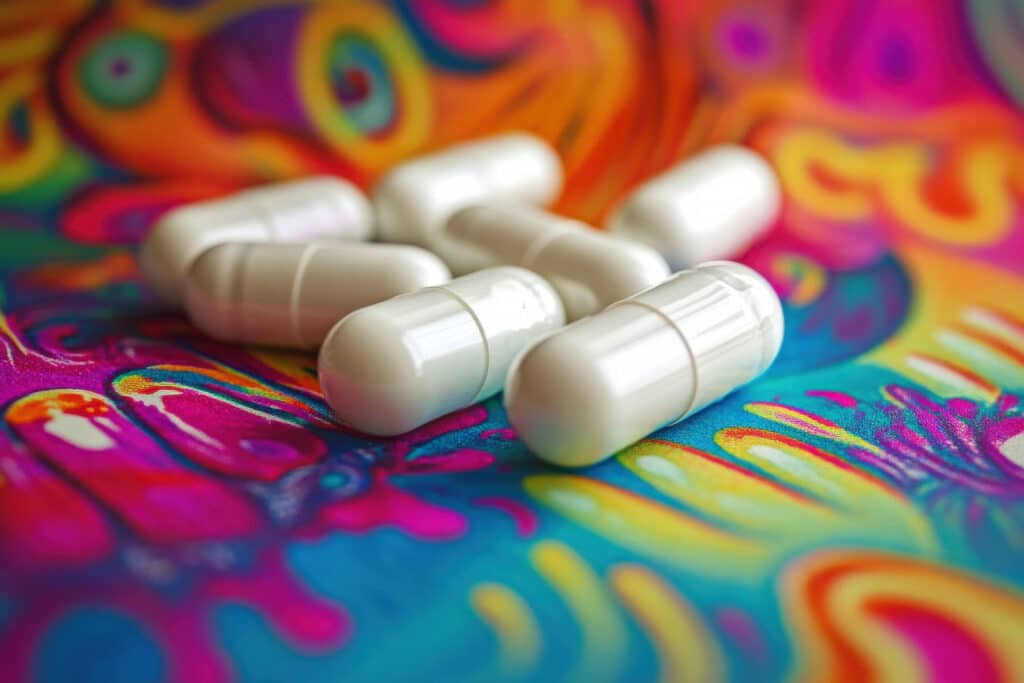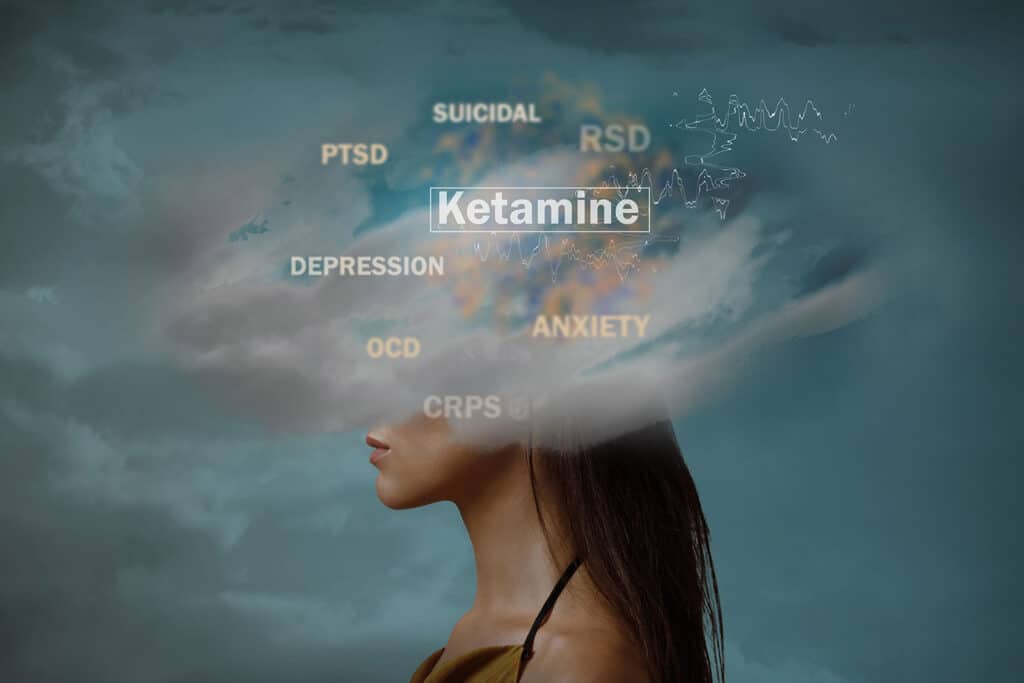Hallucinogens are substances that have been used since ancient times for religion and medicine. Some people claim that they can expand your consciousness, making them seem harmless.
However, even though hallucinogens don’t cause physical dependence like opioids and alcohol, they aren’t without risk. Using hallucinogens can lead to serious psychological harm and respiratory arrest.
Today, we explore how addictive hallucinogens are. You’ll learn the factors that influence hallucinogen addiction. Plus, we discuss how you can seek help.
What Are Hallucinogens and How Do They Work?
Hallucinogens are substances that can alter your perception and mood. Some hallucinogens are man-made, while others occur naturally in plants and fungi. Regardless, most of these psychedelic drugs are unsafe and illegal.
Hallucinogens work by disrupting serotonin and glutamate, neurotransmitters that control various body functions. As a result, hallucinogen use affects your sleep, body temperature, emotions, and memory.

Why People Use Hallucinogens
The history of people’s use of hallucinogens began over 2000 years ago. Native societies took mushrooms and cacti containing hallucinogens for their mind-altering effects. Hallucinogens became a way to connect with the divine.
Today, many people still use hallucinogens for the same reasons – to escape their stresses and find relief.
In recent years, hallucinogens have made their way into music festivals and dance events. Hallucinogen use is almost normalized, with some taking them without understanding the consequences.
Here’s the truth.
While hallucinogens can make you euphoric, repeated use will lead to emotional dependence. Not only that, but bad trips can happen. You may experience intense fear and panic as the drugs cause terrifying hallucinations.
How Addictive Are the Hallucinogens?
There are two types of hallucinogens – classic hallucinogens and dissociative drugs. Classic hallucinogens are less addictive, while dissociative drugs can cause dependence.
Understanding the addictive potential of the hallucinogens is vital for anyone considering their use. Here’s what you should know.
1. LSD
LSD, or lysergic acid diethylamide, is a potent hallucinogen that has a high potential for substance abuse.
LSD is a classic hallucinogen. It doesn’t cause compulsive drug-seeking behaviors like cocaine, but you can build a tolerance.
LSD is dangerous because users often have flashbacks. Even if they stop taking the drug, long-lasting psychosis can happen. Unfortunately, LSD users may develop severe depression and schizophrenia.
2. Psilocybin
Psilocybin, magic mushrooms, or shrooms, is a classic hallucinogen that can cause distortions of sounds and vision. You lose your sense of time, and you may feel intense joy and terror.
According to the NIH, psilocybin use doesn’t typically lead to addiction. The risk is low, although some people may develop substance use disorder due to psilocybin.
3. DMT and Ayahuasca
DMT, or dimethyltryptamine, is a classic hallucinogen that causes short-term trips. It’s sometimes mixed with other substances to create ayahuasca, a drink used in religious ceremonies.
Even though DMT isn’t addictive, it can cause an uncomfortable comedown. You may experience anxiety, fear, and confusion as you detox from DMT.
Moreover, using DMT can lead to seizures, increased heart rate, and agitation.

4. Mescaline or Peyote
Peyote is a small cactus that contains mescaline, a classic hallucinogen.
In large quantities, peyote can produce physical effects like nausea, chills, and shivering. Some users experience bad trips where they feel terror.
The National Institute on Drug Abuse (NIDA) says peyote isn’t addictive. That said, repeated use can be unpredictable. Flashbacks can happen, and the comedown can be difficult.
5. Ketamine
Ketamine is a dissociative drug that can affect your mind and mood.
Some studies say that ketamine produces shorter bursts of dopamine, which lessens the risk of addiction. Yet, others say that there’s a lack of evidence and that ketamine can be addictive.
Regardless, ketamine is dangerous due to its side effects. It can cause depression, poor coordination, agitation, and hallucinations.
6. PCP
PCP, phencyclidine, or angel dust, is a deadly dissociative drug. In high doses, PCP use may lead to coma, seizures, and death.
PCP was originally developed as an anesthetic for surgery, but its medical use was later discontinued due to its side effects.
PCP is psychologically addictive, and users can become dependent. Your tolerance also builds the more you use the drug.
7. Salvia
Salvia is a dissociative drug that naturally occurs in an herb native to Mexico. It produces short-term but intense hallucinations. Users describe it as a complete detachment from reality.
Although many sources claim salvia isn’t addictive, there are not enough studies on its long-term effects. It’s labeled as a drug of concern, and there are no FDA-approved treatment medications for it yet.

Factors That Influence Hallucinogen Addiction Potential
Your risk of developing a hallucinogen addiction depends on many factors.
- Hallucinogen Type: Certain types of hallucinogens are more addictive than others. In general, dissociative drugs like PCP and ketamine can cause dependence.
- Frequency of Use: The more you use hallucinogens, the higher your risk of addiction. You can also build a tolerance, and it’ll take higher doses to achieve the same effects.
- Mental Health Conditions: Those with mental illness are more prone to addiction.
- Personal Circumstances: If you use hallucinogens to escape emotional pain, you have a higher chance of becoming addicted. Mental health issues can lead to a problematic relationship with drug use.
Are Hallucinogens Deadly?
Yes, hallucinogen drugs can be deadly. They can cause negative consequences like elevated heart rate and increased blood pressure.
Hallucinogen persisting perception disorder (HPPD) can hold a grip on you for years. This happens when you re-experience the effects of hallucinogens even years after your last dose.
Aside from these, hallucinogens have psychological effects like fear, paranoia, and anxiety. High doses can cause an overdose.
According to the DEA, hallucinogen deaths happen due to risky behavior, self-harm, respiratory arrest, and seizures.
Signs of Hallucinogen Abuse and Addiction
If you notice any of these signs in a loved one, they may have a hallucinogen use disorder.
- Altered Perceptions: They see and hear things that aren’t there. Some users get extreme anxiety and hallucinations.
- Cardiovascular Collapse: Excessive hallucinogen use can lead to cardiovascular collapse and hyperthermia. These can be life-threatening.
- Psychosis: Some people can remain in a persistent psychotic state. They can get flashbacks even after drug use.
- Increased Tolerance: Tolerance to hallucinogens like LSD can develop rapidly. When this happens, users also build tolerance for other hallucinogen drugs.
If someone you know is struggling with hallucinogen use disorder, it’s important to approach them with empathy. Create a safe space where they can open up, and encourage them to seek professional help.

What Hallucinogen Addiction Treatment Looks Like
At Recreate Behavioral Health Network, we understand the grip hallucinogens can have on you. That’s why we use evidence-based therapies that can help you reclaim your life.
Here’s what you can expect at our treatment center.
1. A Safe Detox
We ensure you stay safe from any withdrawal symptoms. Our healthcare practitioners can monitor you 24/7 and resolve any discomfort you may have.
We always focus on your well-being and mental health throughout detoxification. In some cases, we may even use prescription medication to lessen your cravings.
2. World Class Amenities
Our facility is fully equipped with cutting-edge equipment. Our facility is nestled in Boynton Beach, where you can enjoy clear, sunny skies year-round.
You’ll feel at home in our recovery residences, and the environment can promote lasting recovery!
3. Flexible Treatment Options
We tailor treatment programs based on the level of drug addiction. Our facility offers inpatient treatment where you receive intensive care. Moreover, those who want more flexibility can opt for the outpatient treatment program.
On top of this, we’re equipped to deal with mental health issues. We have a dual-diagnosis program that addresses mental disorders and co-occurring addictions.
4. Compassionate Healthcare Providers
Our clinical and management teams are trained and experienced with tackling hallucinogen abuse. We understand how addiction can affect you and your whole family. We use an understanding and empathetic approach to give you the best experience.
5. Holistic Therapies
Being around nature means you get access to various holistic therapies. We have equine therapy, acupuncture, art therapy, massage therapy, and fitness therapy, to name a few.
At Recreate, all of your days will be meaningful and focused on recovery.
6. Continuous Care
You can still get our support even after addiction treatment. We can create a relapse prevention plan to prevent you from relapsing. Plus, we have 12-step programs, counseling, and other activities you can attend.

Conclusion
So, how addictive are hallucinogens?
To sum it up, hallucinogens aren’t as addictive as opioids or other substances. Some types of hallucinogens, like LSD and DMT, have a low chance of addiction. Meanwhile, dissociative hallucinogens like ketamine have a higher chance of addiction.
That said, regardless of addictiveness, all hallucinogens are dangerous. They can cause intense flashbacks even years after your last dose. Not only that, they can cause risky behaviors and even depression.
If you or a loved one is struggling with hallucinogen use, it’s important to seek professional help immediately. Consulting a rehab center can potentially save your life.
Remember, Recreate Behavioral Health Network is here to guide you every step of the way. All you have to do is reach out to us, and we’ll handle the rest.











